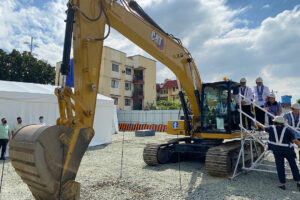THE Federation of Filipino Chinese Chambers of Commerce and Industry, Inc. (FFCCCII) said amendments to the Right-of-Way (RoW) law are needed to address a “national crisis of competitiveness.”
“The FFCCCII urges the 19th Congress to act with the urgency this crisis demands. Infrastructure is the foundation of economic vitality, and every day of delay widens the gap between the Philippines and its thriving neighbors,” FFCCCII President Victor Lim said in a statement late Sunday.
“The time for debate has passed; the time for decisive action is now. Let us shed the legacy of hesitation, embrace the lessons of global success, and finally secure the future our nation deserves,” he added.
He said that the Philippines lags its neighbors in infrastructure due to “self-imposed paralysis.”
RoW is currently governed by Republic Act 10752, whose provisions diverge with the RoW rules set by foreign donors, leading to confusion on how to proceed with projects funded by development partners like the Japan International Cooperation Agency.
“China’s vast high-speed rail network — the largest in the world — stands as testament to what decisive RoW policies can achieve,” Mr. Lim said.
“The question is no longer whether we can afford to act — it is whether we can afford not to,” he added.
He said that the failures of infrastructure development are not just the result of “bureaucratic inefficiencies.”
“They represent nothing less than a national crisis of competitiveness, one that undermines economic growth, erodes our regional standing, and deprives millions of Filipinos of the modern connectivity they deserve,” he added.
Citing the Metro Manila Subway, North-South Commuter Railway, and Light Rail Transit Line 1 Cavite Extension, he said big infrastructure projects are being delayed due to RoW disputes.
These delays resulted in “lost productivity, stifled investment, and prolonged suffering for commuters trapped in endless congestion.”
“The proposed RoW amendments are not minor adjustments but essential reforms to break this cycle of failure,” he said.
“Standardized valuation based on fair market principles, guaranteed funding for land acquisition, and structured resettlement programs address the root causes of delay: arbitrary pricing, fiscal uncertainty, and inadequate planning,” he added.
He said the law must include interim rental subsidies for affected residents to avoid situations where landowners wait years for compensation.
“The true injustice lies in denying our people the infrastructure that drives opportunity, employment, and prosperity,” he said.
“A modern RoW law ensures both fairness and efficiency — delivering prompt, just compensation while unlocking projects that will benefit generations,” he added. — Justine Irish D. Tabile

